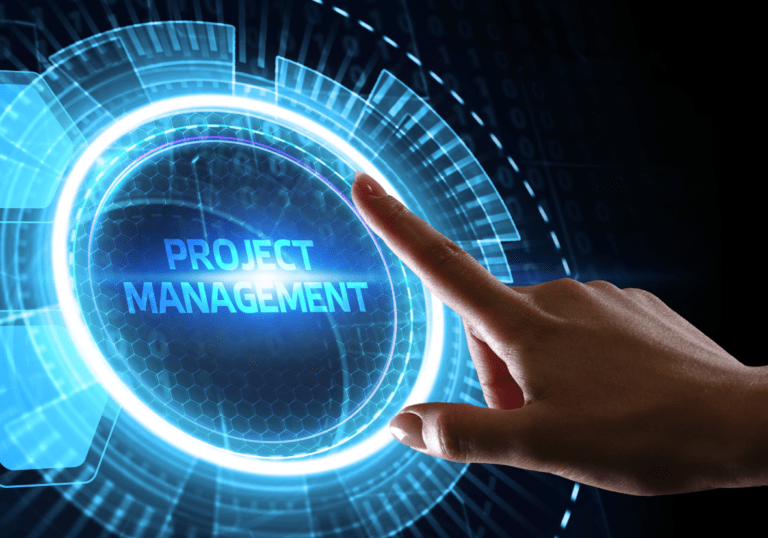New and Upcoming AI-Related Roles in the Translation and Localization Industry

As the translation and localization industry evolves, innovative solutions and technological advancements are creating new opportunities for professionals. The integration of Artificial Intelligence (AI) is not only transforming existing roles but also paving the way for new positions that blend linguistic expertise with technical know-how. In this blog post, we explore the emerging AI-related roles that are shaping the future of the industry.
AI-Enhanced Language Model Trainers
Language models powered by AI require continuous training and refinement. AI-Enhanced Language Model Trainers are experts in linguistics who work alongside machines, providing the necessary human insight to improve machine translation accuracy and cultural relevance.
Localization Data Scientists
Data is at the heart of AI-driven localization. Localization Data Scientists specialize in analyzing vast amounts of linguistic data to uncover patterns and insights that can enhance translation processes and outcomes.
Translation Technology Strategists
Embracing strategic foresight, Translation Technology Strategists oversee the development and integration of AI tools within translation workflows, ensuring that technology aligns with business objectives and growth goals.
AI Language Quality Analysts
In the realm of translation, the assurance of quality is paramount. AI Language Quality Analysts are the vanguard of this domain, merging their deep linguistic skills with sophisticated AI tools to redefine excellence in translated material. These analysts utilize cutting-edge technology to identify and rectify subtle linguistic nuances, ensuring that translations not only meet but exceed industry standards. By setting new benchmarks, they help in establishing a new echelon of quality, reliability, and consistency in translated content, which is crucial for global businesses and multilingual communication.
AI Ethics Compliance Managers
With the ever-growing prevalence of AI, the role of AI Ethics Compliance Managers becomes increasingly significant. These professionals are dedicated to ensuring that AI applications in translation and localization not only adhere to the highest ethical standards but also fully respect and understand the cultural nuances of each target market. They work diligently to develop and implement guidelines that govern the ethical use of AI, considering aspects such as data privacy, consent, and the potential impact on diverse communities. Their expertise in both ethical frameworks and linguistic subtleties positions them as key players in the responsible deployment of AI technologies, safeguarding against biases and promoting fairness and inclusivity in AI-enhanced translation services.
Client AI Integration Consultants
Emphasizing partnerships and client success, Client AI Integration Consultants are pivotal in guiding organizations through the complex process of integrating AI-driven translation solutions. These consultants work closely with clients to understand their specific communication challenges and objectives, developing tailored strategies that leverage the latest AI technologies to enhance translation accuracy, efficiency, and scalability. Their consultative approach involves a thorough assessment of the client’s existing infrastructure, workflows, and goals, followed by the recommendation and implementation of AI tools that align with the client’s strategic vision. By fostering collaborative relationships and providing ongoing support, Client AI Integration Consultants ensure that organizations can fully harness the benefits of AI to meet their unique communication needs in an ever-evolving global marketplace.
Machine Learning Localization Engineers
Machine Learning Localization Engineers are at the forefront of developing algorithms that can learn from and adapt to diverse linguistic datasets, enhancing the personalization of translation services. These engineers play a critical role in crafting the sophisticated AI that underpins modern localization efforts. By designing systems capable of understanding and processing multiple languages, they enable translations that are not only accurate but also contextually relevant and culturally sensitive. Their work involves extensive testing and refinement to ensure that the AI’s output meets the high standards expected by clients worldwide, contributing to a seamless communication experience across different markets and cultures.
Conversational Interface Designers
Conversational Interface Designers are pivotal in today’s interconnected landscape, crafting AI-powered interfaces that offer intuitive, user-friendly communication across various languages and cultural contexts. Their expertise lies in designing systems that understand and respond to natural language inputs, effectively breaking down language barriers and enhancing user experience. By leveraging advancements in natural language processing and machine learning, they create dynamic platforms that learn and evolve, ensuring effective and accurate intercultural communication. Their role is instrumental in developing solutions that are not only technologically advanced but also deeply empathetic to cultural differences, facilitating a more inclusive and connected world.
AI Content Adaptation Specialists
Content adaptation goes beyond translation. AI Content Adaptation Specialists ensure that content is not only translated but also culturally adapted for target audiences, using AI to assist in this nuanced process.
Global AI Project Managers
Global AI Project Managers coordinate cross-functional teams to deliver AI translation projects that drive global growth and communication efficiency.
AI Prompt Engineer/AI Whisperer
AI Prompt Engineers create, develop, and improve AI-generated text prompts for a variety of applications that guide users to interact with AI systems effectively. In April 2024 Bloomberg reported job postings for an “AI Prompt Engineer/AI Whisperer” role, offering an annual salary of $325K highlighting the demand for individuals capable of manipulating AI output, even for liberal arts grads. Moral of the story – stay relevant!
These roles represent just a glimpse of the future in the Language industry. As AI continues to advance, we can expect to see even more specialized positions that harness the power of technology to bridge communication gaps and create transformative impact on a global scale.
At Lion People Global, we are committed to staying at the forefront of these developments, offering full-spectrum talent solutions to help businesses and individuals navigate the exciting landscape of AI in our industry. Together, we can unlock growth opportunities and make the right connections to thrive in this dynamic environment.
Closing thoughts
The translation and localization industry is rapidly evolving with the integration of AI technologies, opening up new and exciting roles for professionals. From AI-driven translators to language data analysts and cultural consultants, these emerging roles not only streamline processes but also enhance the quality and efficiency of language services.
Embracing these advancements and upskilling in relevant AI tools and methodologies will be pivotal for individuals looking to thrive in this dynamic industry. As AI continues to reshape the landscape of translation and localization, those who adapt and innovate will undoubtedly lead the way towards a more connected and culturally diverse global community.







One Comment